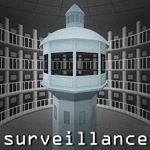From La Quadrature du Net
Jump to navigationJump to search__NOTITLE__
Bienvenue sur le wiki des 7 gus dans leur garage !
Ce wiki promeut les actions de La Quadrature du Net, organisation citoyenne de défense des libertés sur Internet.
Ce wiki n'est pas à jour, et il s'agit d'une archive statique. Pour avoir toutes les dernières informations, nous vous conseillons de vous rendre sur le site de la Quadrature du Net
 |
Campagnes et événements
Calendrier
|
 |
Participer
|
|
Outils & Applications
- Quadpad Traitement de texte collaboratif.
- Co-ment Commentaire de texte collaboratif.
- Mémopol Recensement et suivi des députés européens et français (infos)
- PiPhone Mise en relation téléphonique gratuite des citoyens avec leurs députés (infos)
- Médiakit Banque de données audio et vidéo (infos)
- RespectMyNet Recensement et documentation des atteintes à la neutralité du Net (infos)
- Glossaire collaboratif utilisé pour les traductions.
- Glossaire des termes et concepts utilisés dans le travail de La Quadrature.
|
|
Aider la Quadrature
- Contribuer : la Quadrature a besoin d'une grande diversité de compétences. Geek ou non, votre aide est la bienvenue !
- Soutenir : bannières et illustrations librement utilisables sont à votre disposition pour afficher votre soutien à la Quadrature sur votre site.
- Financer : pour soutenir l'action de la Quadrature, vous pouvez aussi faire un don financier.
|










